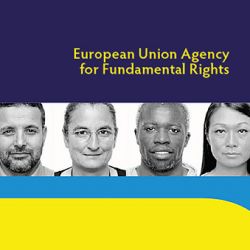Different level of protection within EU
According to the report the level of protection is different in different Member States. The report point to the crucial problems concerning the treatment of lesbian, gay, bisexual and transgender (LGBT) persons in Europe. Firstly, the procedure of gender-reassignment is problematic. Regulations concerning conditions in which gender reassignment is performed as well as medical proceedings and the legal acceptance of the effects of the reassignment are unclear and full of obstacles in all of the Member States.
Secondly, the report shows an increase in the number of states where the protection against discrimination based on sexual orientation exceeds the area of employment and includes other fields, such as those referred to in the racial directive. At the same time, many states limit the scope of protection. Most Member States expanded the competences of bodies responsible for equal treatment in such a way as to include discrimination based on sexual orientation. There are however states which did not introduce such measures.
Thirdly, concerning the issue of families reunification, almost half of the states do not grant the right of entry and residence to the same-sex partners. Finally, although the report claims that, due to the fact that sexual orientation is named among grounds for possible discrimination, the level of protection of LGBT persons has increased, transgender persons do not enjoy comparable protection.
Moreover, although some states grant protection already if the risk of harassment is confirmed by the lack of social acceptance for homosexuality in the state of origin, other states require that the harassment is penalized.
Situation in Poland
The report also mentions the situation in Poland. On the one hand Poland is praised for improving the situation of LGBT persons concerning the freedom of assembly (here the example is Europride 2010) as well as granting international protection due to the risk of harassment on the ground of sexual orientation.
On the other hand, the report speaks broadly of negative practices. For instance, Poland is among countries, who do not try to expand the scope of protection of LGBT persons to also cover fields included in the protection against discrimination on the ground of racial or ethnic origin (this problem concerns 9 countries).
Moreover, the report shows that Poland lacks an independent equality body, that would handle the problem of protection of LGBT persons (the same problem exists in 7 Member States). Moreover, incitement to hatred and expressions of prejudice and discrimination is not clearly considered a crime. The report points to the limitation of the right to enter and reside in Poland of the same-sex spouse. It points to the negative practice of administration, who deny granting necessary certificate to polish citizens of the same sex, who want to marry in a country where such marriages are legal.
FRA’s report is based on national reports. Polish report was prepared by experts who cooperate with HFHR. It is available at:
http://www.fra.europa.eu/fraWebsite/research/publications/publications_per_year/pub-lgbt-2010-update_en.htm





